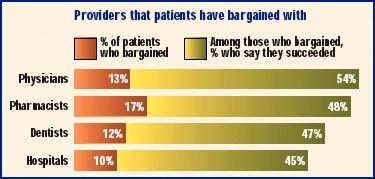Article
Practice Beat
Tort Reform, Racial Disparity, Health Costs, Telemedicine
Practice Beat
Joan R. Rose
Tort Reform: Searching for solutions to escalating malpractice costs
Almost nine out of 10 medical malpractice claims against Texas doctors are closed with no money paid to the claimant, according to studies by the state medical association, yet insurers cite the rising costs of settling claims when setting higher insurance renewal rates. Noting that "skyrocketing" insurance premiums are forcing many doctors to curtail or abandon their practices, Texas Gov. Rick Perry has outlined a plan to resolve the state's "medical lawsuit abuse crisis."
Aimed at curtailing "frivolous and abusive" lawsuits and escalating payouts, Perry's plan calls for capping noneconomic damages at $250,000 and limiting trial lawyers' fees. He also wants to create special courts to hear medical malpractice cases. The judges would have expertise in malpractice issues and, thus, be better able to weed out frivolous suits, sanction lawyers who bring them, and award litigation costs in meritless cases.
For health care providers who contract with the state to treat low-income patients, the governor would extend tort immunity to cases that arose from such care. In addition, the state would provide temporary, emergency liability insurance for doctors who had been denied coverage solely for economic reasons. Critics accuse Perry of trying to mend political fences with physicians, who were angered by his unexpected veto of insurance reform last year. Most of the governor's proposals would require legislative approval.
Racial Disparity: Doctors don't deny its existence, but contend that it isn't widespread
Physicians admit that racial disparity exists in the treatment of certain diseases, but most believe that insurance status is more likely than race or ethnicity to determine how a patient is treated. Although a majority of 2,608 physicians polled admit there are racial disparities in the treatment of heart disease (65 percent) and HIV/AIDS (57 percent), seven out of 10 say that, overall, the health care system rarely or never treats people unfairly because of race or ethnicity.
African-American physicians see it a little differently, however. Seventy-seven percent of them believe race and ethnicity have at least some impact on how patients are treated.
The findings are from the Kaiser Family Foundation's forthcoming National Survey of Physicians.
Health Costs: Doctors may soon feel like used car salesmen
Don't be surprised if your patients try to haggle with you over the price of your services. A recent Harris Interactive poll found that 13 percent of respondents had already tried to negotiate lower bills with physicians, and, researchers say, rising out-of-pocket costs are likely to spawn even more bargaining over the next several years. Indeed, three-quarters of the respondents said they wouldn't be averse to trying it.

Telemedicine: Are virtual visits as good as face to face?
Despite the increased use of telemedicine in recent years, reimbursement for such services is rare. Now the University of Texas Medical Branch at Galveston will use a $1 million grant from the SBC Foundation to establish a telehealth research center. Researchers will collect data to demonstrate the effectiveness of this technology in diagnosing and treating people who live in remote and medically underserved locations in the US and other countries. It's hoped that their findings will encourage insurers to establish reimbursement policies for telemedicine consultations.
The author is a Contributing Writer.
Joan Rose. Practice Beat. Medical Economics 2002;10:13.





